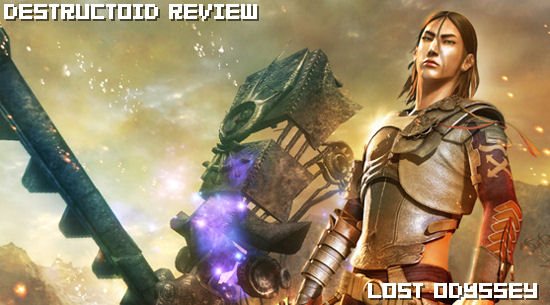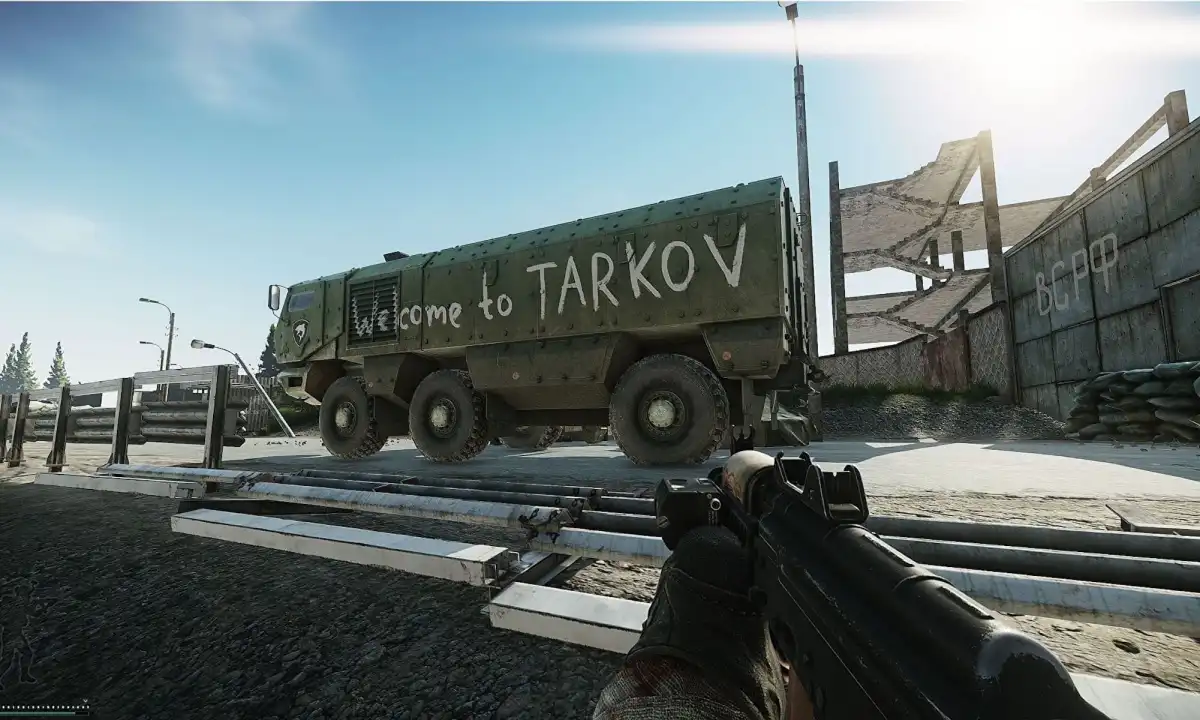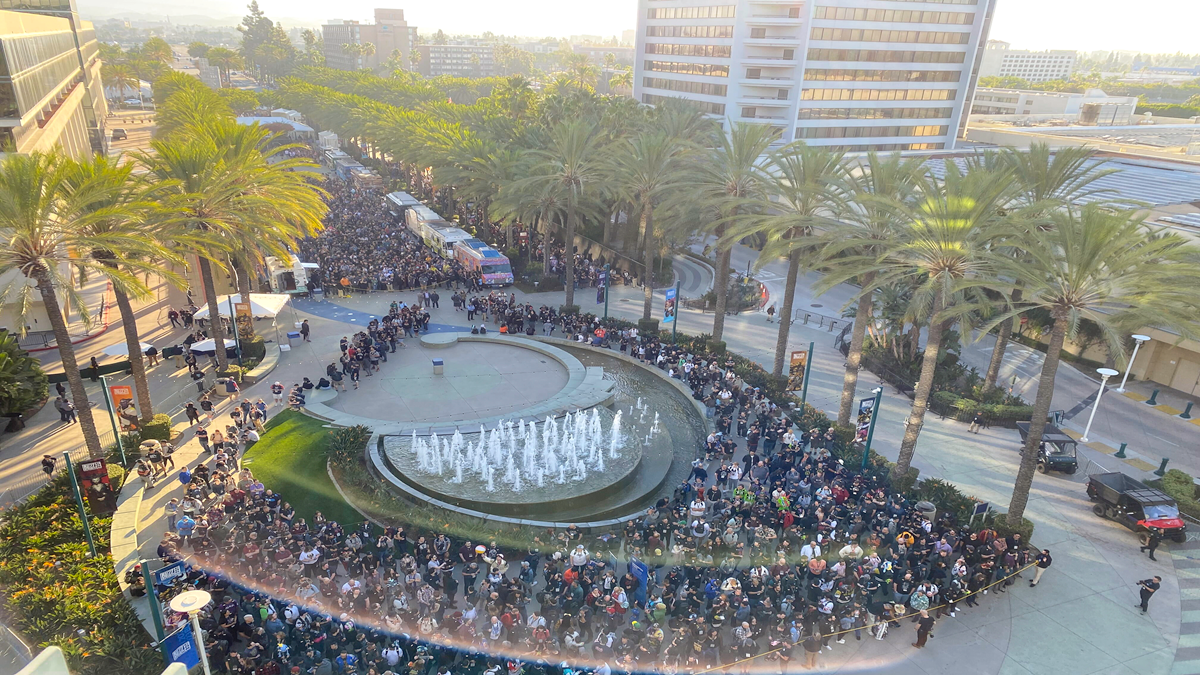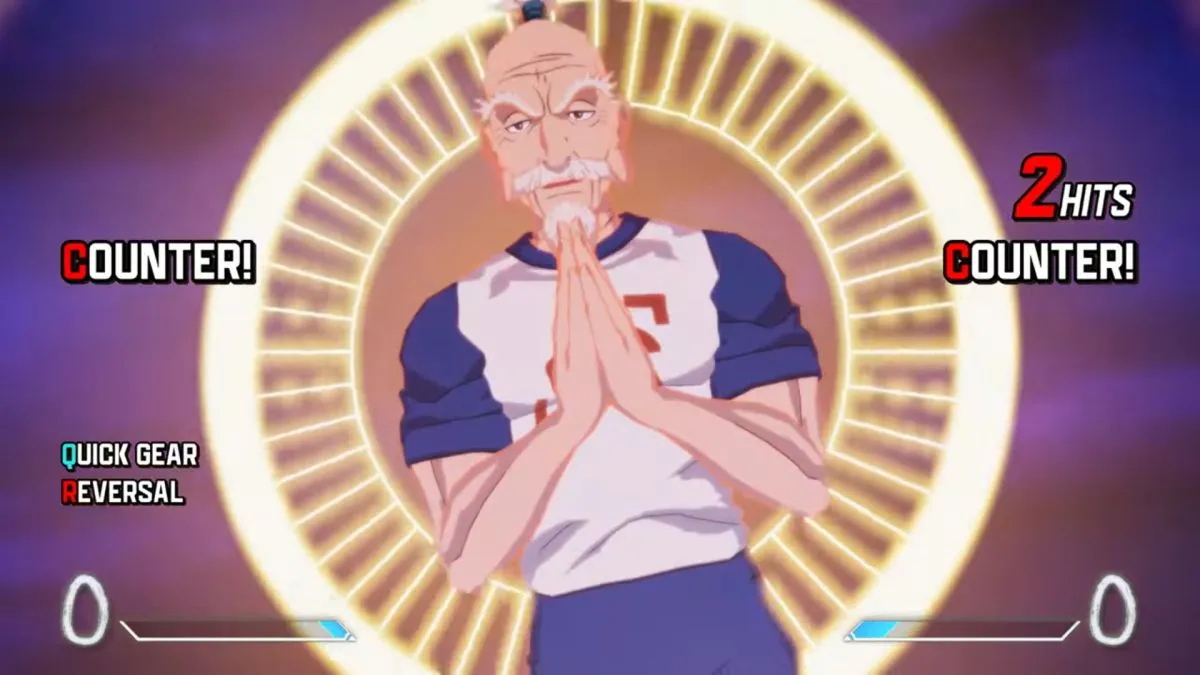Despite having a range of different genres, the Xbox 360 cannot seem to stop itself being associated with shooters. It’s true that shooting games seem most at home on Microsoft’s red ring machine, but the platform is certainly attempting to provide a variety of gameplay experiences. One area in which it has sorely been lacking is JRPGs — scratch that — good JRPGs.
Enchanted Arms was a flop, Blue Dragon is widely regarded as disappointing and Eternal Sonata, though an excellent stopgap, was not without its glaring faults and left fans wanting something more. Well, something more has arrived and it’s come in the form of Mistwalker’s Lost Odyssey.
Penned by award winning novelist Kiyoshi Shigematsu, produced by Final Fantasy creator Hironobu Sakaguchi, developed by former Shadow Hearts team members and scored by the legendary Nobuo Uematsu, Lost Odyssey has enough name power to impress even the most apathetic gamer, but the question remains — is this the game that JRPG loving 360 owners have been waiting for?
You likely already know the answer, but hit the jump for our full Destructoid review.

Lost Odyssey (Xbox 360)
Developed by Mistwalker/Feelplus
Published by Microsoft Game Studios
Released on February 12, 2008

Lost Odyssey is centered around Kaim Argonar, an immortal who has lived for 1000 years. Working as a mercenary, Kaim has no memory of his long life and fights without purpose or feeling. We join Kaim as he fights on the side of the kingdom of Uhra, facing off against the army of Khent in the Whol Highlands. As the two forces clash, however, a giant meteor tumbles from the sky and wipes out every living being — except Kaim, of course.
The game starts out with an amazing bang, and certainly has a memorable opening. From the very start, the game grips the player, not least because the opening FMV subtly and astoundingly merges with the gameplay to become a turn based battle. While traditional in its methods, it’s touches like this that make Lost Odyssey more than just a forgettable RPG retread.
Make no mistake, this game is not “innovative,” which will disappoint the pundits who have got it into their heads that every game has to now be 100% fresh and original in order to be worth someone’s time. You won’t find pretentious attempts at innovation in Lost Odyssey, just some old fashioned roleplaying action, and some beautiful penmanship.
JRPGs rise and fall in accordance to their storytelling, and this is where Lost Odyssey truly stands out from the crowd. It has been too long since a game of this emotional magnitude was last released, and Lost Odyssey weaves a tale so tinged with sadness that you may be tempted to reach for the Prozac. The frailty of human life is laid bare in this game, as our lives, so fleeting to immortal characters such as Kaim, are examined and exposed perhaps more than one might be comfortable with. You will be thinking about death a lot when you play this — not just your own. If you let it, in fact, Lost Odyssey will truly resonate with you.

Some of the most impacting storytelling comes not from the game itself per se, but from A Thousand Years of Dreams. As Kaim travels the world, certain things he sees and hears will jog aspects of his memory, slowly awakening him to the past thousand years of life he’s forgotten. What will then follow is a short story, told through words and music only, that shares one of Kaim’s past experiences with the player. Although the “excessive” text has drawn criticism from some, I highly praise the move. I believed the stories would break away from the action too much, and they do to an extent, but the writing is so exquisite and heartbreaking, that it’s more than forgiven. Besides which, JRPGs started out as purely text driven — has it taken such a short amount of time for us to become that lazy?
As far as the gameplay goes, this is the same archaic beast we started playing in the eighties — and I love it. Random battles, turn based fighting, the same old fire spells and attacks, everything you have come to expect from a JRPG can be found in Lost Odyssey. While LO does nothing really new with the genre, it doesn’t have to, because everything is so refined and finely crafted that settling down with it for a few hours is a joy.
It’s not that things are perfect — random battles, as old school as they may be, are still annoying and can hamper one’s desire to explore the map. The sheer amount of micromanagement one needs to do could put off players who just want to get on with it. Immortal characters like Kaim not only have to worry about equipping weapons and accessories, but also need to learn special abilities from items or mortal characters. Unlike mortals, immortals cannot learn abilities on their own, so you need to constantly link characters together in order to keep them learning new tricks. While it’s fine for people with obsessive-compulsive disorder, it can be a little confusing to work out who has what, who is learning which skill, and who’s currently wearing the Warm Vest.

Lost Odyssey‘s battles do bring one gimmick to the table — the ring system. Since Mistwalker is made up of many former Shadow Hearts developers, there’s no surprise that rings are featured yet again. In LO, a large ring slowly closes in on a smaller one for as long as you keep the left trigger held down. The aim is to release the trigger just as the two rings are eclipsed. The result of this is determined by what ring your character has equipped — be it an extra amount of damage dealt, or an elemental property added to the attack. While nothing special, it does an extra element of action to battles, though it has to be said that the timing is not made clear and it’s difficult to get the hang of scoring “perfect” ring attacks. I’m glad of the system though, especially as combining items to make more powerful rings is pretty fun.
Lost Odyssey features some epic boss battles that provide quite a tougher prospect than the majority of common enemies. Although you’ll be more than capable of seeing off the majority of them, some of the earlier ones need a good bit of pre-fight preparation and deeper into the game, there’ll one or two sticklers that are challenging mainly because of certain restrictions (that I won’t spoil here). While the selection of bosses aren’t as memorable as ones in other RPGs (I still have blooded visions of the Demon Wall in FFVII), they are nonetheless entertaining and should satisfy the hardcore RPG obsessives.
Visually, Lost Odyssey is rather good looking, though not the prettiest title on the Xbox 360. There are nice effects, such as backgrounds and foregrounds moving in and out of focus as you move around the world, but ultimately it’s nothing jaw dropping. The framerate issues are sadly true as well, with the 360 sometimes struggling to run it smoothly. This is something I don’t quite understand, since the game is spread across four discs and really doesn’t seem to have as much FMV crammed into it as I was led to believe. Whatever the reason, the fact is that if you need your games to run 100% smoothly, you won’t be happy. While never fully distracting, the occasional stutter is evident and will be an issue for framerate whores. Luckily, the audio elements are far from disappointing. Nobuo Uematsu is in top form for his scoring of this game, his signature sound unmistakable and sweeping orchestral scores adding to the drama of the story. At required times, his music is delicate and beautiful, perfectly complimenting the sorrow of the game. At others, it’s grand and thrilling, again, perfectly matching the onscreen action.

Special mention should go to the vocal talent that does an amazing job of bringing each character to life. Unlike most games where characters reel off lines and take several pauses between them, Lost Odyssey features people who will talk naturally to each other, with proper interruptions, and characters speaking others. It’s very well directed, and such characters as Jansen are truly made special by the talent providing the voice. Jansen, for the record, may be the funniest character of recent gaming history, tied only with GLaDOS.
Lost Odyssey is certainly not perfect, but as a fine example of JRPGs, it’s damn near. The game oozes quality from every pore and provides a stern answer to people who think writing in videogames can’t be mature or deep. No, there’s nothing “new-gen” about the gameplay, but Lost Odyssey isn’t trying to conform to some arrogant notion of what’s “innovative.” It’s just trying to provide an emotional, lengthy, memorable RPG experience and makes no apologies for using truly old school methods in doing so. You can take your innovation and shove it — the gaming world is better for having software like Lost Odyssey in it, no matter how aged its mechanics.
Score: 9.0


I should preface this review, in the spirit of full disclosure, by saying that I aboslutely love JRPGs. It’s my favorite genre, and I’m probably more willing to forgive its assortment of bumps and warts than most. Even though I’m willing to forgive Lost Odyssey its flaws, I won’t forget them. The game’s not perfect by any means, but it’s solid contribution to JRPGs and the Xbox 360 library. My biggest fault with the game? Even though he looks just like Li Shang from Mulan, Kaim never bursts out into “I’ll Make a Man Out of You.”
The stories are true: Lost Odyssey is filled to the brim with cinematics and cutscenes. Each new locale gets its own little intro, and FMVs serve as the primary exposition of the plot. It’s no Xenosaga, but there’s quite a handful of them, with numerous loading screens to match. Jim might not be particularly bothered, by I think a “less is more” approach would’ve made the experience a bit more fluid and less distracting.
Even worse, Lost Odyssey has a bad habit of holding the player’s hand through the game’s puzzles. For example, early in the game, the player must navigate the hull of a ship while avoiding sentries. Unfortunately, there is a small scene of dialogue when you reach every single sentry explaining how to get past it. Not only does it deflate any sense of accomplishment, but the superfluous scenes totally break the flow of the game.
Like Jim, I’m a big fan of the Thousand Years of Dreams, although I’ll admit that they are a double-edged mechanic. On the one hand, they take the player out of the experience, detract from the action, and are terribly over-written. I’m not sure if the original script is to blame, or an overzealous localization team, but grandiose, adjective-laden verbiage positively litters the screen when simple, subtle writing would have sufficed.
On the other hand, bombastic writing aside, the dream sequences are incredibly, painfully poignant, and the way that they interweave with the various plotlines is an impressive feat. The way I see it, there are three levels of narrative in Lost Odyssey — the political machinations of a nation in the throes of an industrial revolution, Kaim’s search for his memories, and the memories themselves. The Thousand Years of Dreams serve as the thematic glue to tie them together and to flesh out Kaim’s character. It is because the dream sequences are so jarring that they are effective. The stark contrasts between the poignant, text-only sequences and the regular gameplay really emphasize the sense of mortality and tension that pervades the story, and for that, I commend Hironobu Sakaguchi and Mistwalker. Lost Odyssey‘s story is a tour de force, and I can’t praise it enough.

Moving on, LO‘s combat system has a suprising amount of depth. The ring system provides a lot of opportunity for strategy and alleviates some of the boredom usually associated with turn-based combat. The skill-linking mechanic that Jim mentioned is another little gem that LO brings to the table. If you’re into micromanaging, you can create some truly devastating and rewarding combinations. And you’re going to need them.
The bosses, especially early on, are quite challenging. I found myself using the first couple of encounters with bosses simply studying their moves and patterns (and getting slaughtered in the process) while I finalized and refined my plan. The boss fights may be arbitrarily difficult, but at least they’re challenging and rewarding. It’s nigh impossible to grind your way to victory thanks to area-specific experience caps. You can’t steamroll your way through Lost Odyssey, and the result is a deep, satisfying combat system, archaic as it is.
One note I should make is that standard definition gamers will need to pull out the spectacles. The dialogue and dream sequence are easily readable, but the menus are a bit tricky. The visibility issues aren’t game-breaking for those of you with standard televisions, but they are a pain in the ass.
Jim’s review really hit the high points of Lost Odyssey — it looks, sounds, and plays great, despite its flaws. Fans of the JRPG genre will enjoy Lost Odyssey immensely, as will Xbox 360 owners looking for a deep, compelling narrative. It starts out slow, but Lost Odyssey‘s storyline truly shines. While Lost Odyssey hasn’t revolutionized the face of JRPGs, it is a strong and remarkable addition, a work that that Sakaguchi-san and Mistwalker can be proud of.
Score: 8





